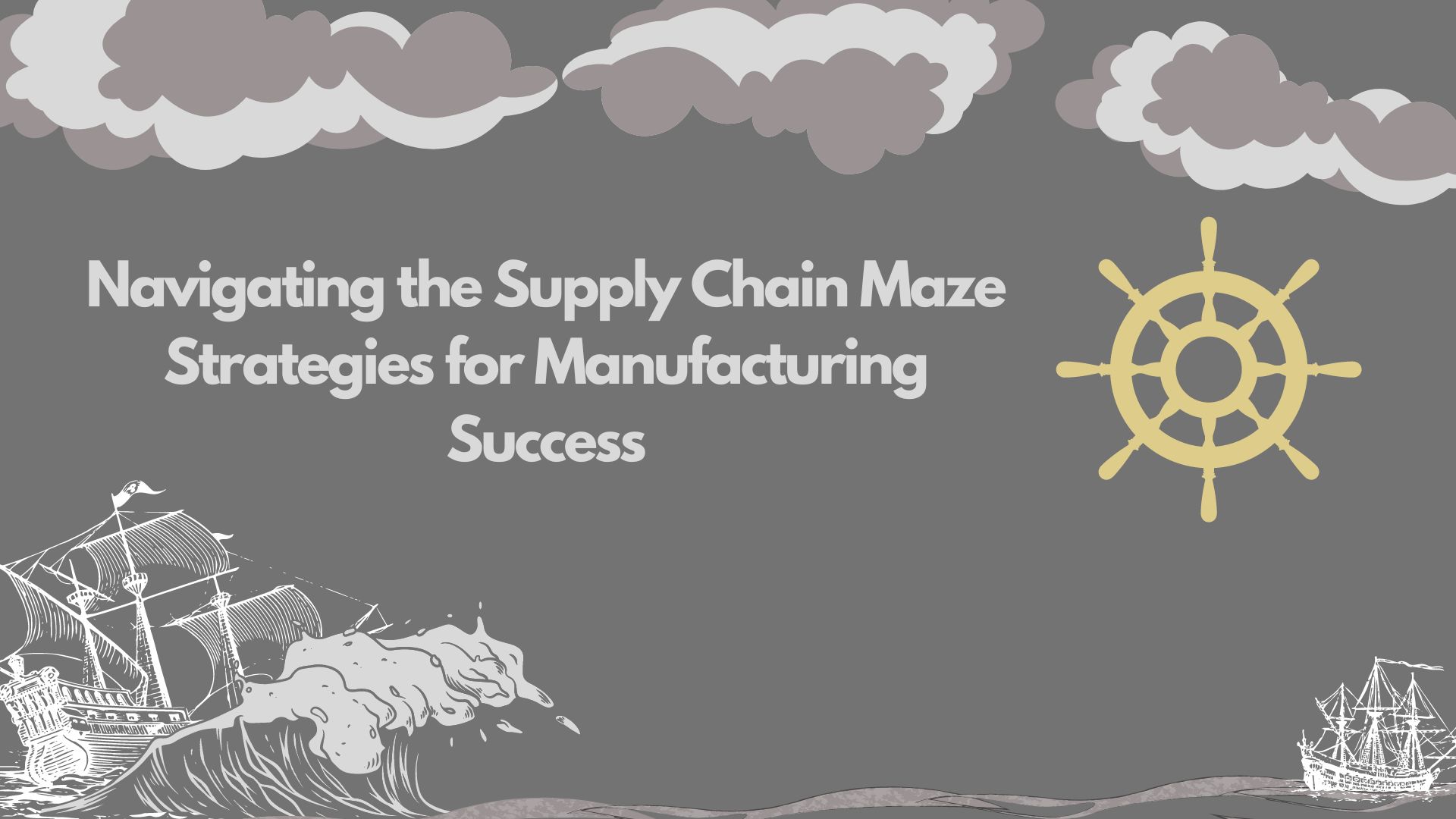Introduction
Supply chain management is a critical component of manufacturing success. As global markets become more interconnected and complex, effective supply chain strategies can make or break a manufacturing operation. This blog explores the key elements of supply chain management, innovative strategies for optimization, and the benefits of a robust supply chain.
The Importance of Supply Chain Management in Manufacturing
- Cost Efficiency: Effective supply chain management helps in reducing costs associated with production, storage, and transportation, ultimately increasing profitability.
- Customer Satisfaction: A well-managed supply chain ensures timely delivery of products, meeting customer demands and enhancing satisfaction.
- Risk Management: Identifying and mitigating risks within the supply chain can prevent disruptions and ensure continuity of operations.
- Quality Control: Maintaining high standards throughout the supply chain ensures product quality and consistency, which is crucial for brand reputation.
- Sustainability: Implementing sustainable practices within the supply chain reduces environmental impact and meets regulatory and consumer demands for eco-friendly products.
Key Elements of an Effective Supply Chain
- Supplier Management: Building strong relationships with reliable suppliers ensures a steady flow of quality materials and components.
- Inventory Management: Implementing advanced inventory management techniques like just-in-time (JIT) and safety stock helps in maintaining optimal inventory levels.
- Logistics and Transportation: Efficient logistics and transportation strategies ensure timely delivery of raw materials and finished products.
- Technology Integration: Utilizing technologies such as IoT, blockchain, and ERP systems enhances visibility and control over the supply chain.
- Demand Forecasting: Accurate demand forecasting helps in aligning production schedules with market needs, minimizing excess inventory and stockouts.
Innovative Supply Chain Strategies
- Lean Manufacturing: Adopting lean principles to eliminate waste, streamline processes, and improve efficiency across the supply chain.
- Agile Supply Chain: Creating a flexible and responsive supply chain that can quickly adapt to changes in demand and market conditions.
- Collaborative Planning: Engaging in collaborative planning, forecasting, and replenishment (CPFR) with suppliers and customers to improve alignment and efficiency.
- Outsourcing and Nearshoring: Evaluating the benefits of outsourcing and nearshoring to optimize cost, quality, and delivery times.
- Sustainable Practices: Integrating sustainable practices such as reducing carbon footprint, minimizing waste, and sourcing eco-friendly materials.
Benefits of a Robust Supply Chain
- Increased Efficiency: Streamlined processes and efficient resource utilization lead to higher productivity and lower operational costs.
- Enhanced Customer Service: Reliable and timely delivery of products boosts customer satisfaction and loyalty.
- Competitive Advantage: A well-managed supply chain provides a competitive edge by ensuring quality, cost efficiency, and responsiveness to market changes.
- Risk Mitigation: Proactive risk management strategies reduce the likelihood of disruptions and ensure business continuity.
- Scalability: A robust supply chain can easily scale to accommodate business growth and changing market demands.
Case Study: Optimizing the Supply Chain for Success
A leading electronics manufacturer, [Company Name], successfully revamped its supply chain to enhance efficiency and competitiveness. Key initiatives included:
- Supplier Relationship Management: [Company Name] built strong relationships with key suppliers, ensuring a steady supply of high-quality components and negotiating favorable terms.
- Advanced Inventory Management: Implementing a JIT inventory system reduced excess stock and associated holding costs, while ensuring materials were available when needed.
- Technology Integration: Using IoT sensors and blockchain technology, [Company Name] enhanced visibility and traceability throughout the supply chain, improving decision-making and reducing delays.
- Sustainable Practices: The company adopted eco-friendly practices, such as using recycled materials and optimizing transportation routes to reduce carbon emissions.
- Agile Supply Chain: Developing an agile supply chain enabled [Company Name] to quickly respond to market fluctuations and customer demands, improving overall responsiveness.
As a result of these initiatives, [Company Name] saw a 20% reduction in supply chain costs, a 15% improvement in delivery times, and a significant boost in customer satisfaction.
Conclusion
Effective supply chain management is vital for manufacturing success, offering numerous benefits from cost savings and increased efficiency to enhanced customer satisfaction and risk mitigation. By adopting innovative strategies such as lean manufacturing, agile supply chains, collaborative planning, and sustainable practices, manufacturers can optimize their supply chains and gain a competitive advantage. As the industry continues to evolve, focusing on supply chain excellence will be key to thriving in a dynamic and complex market landscape.









